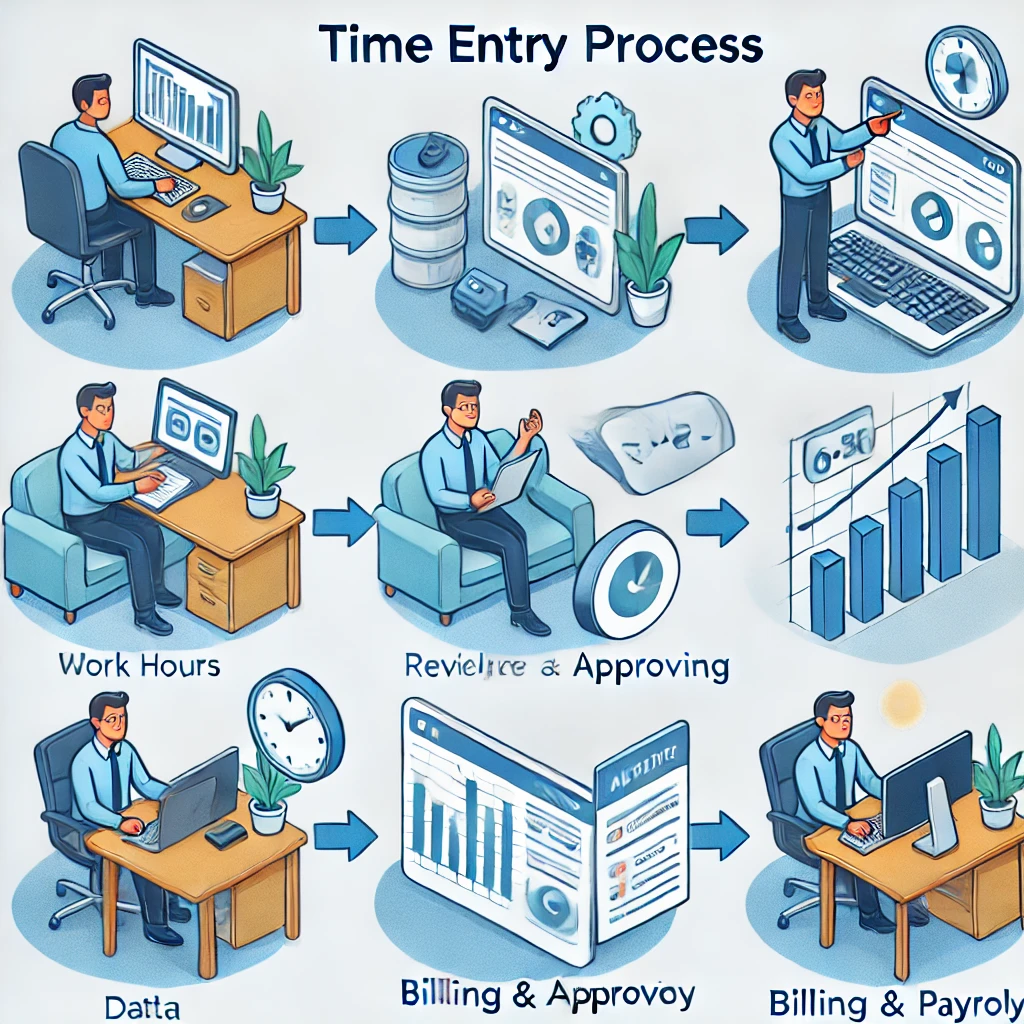Why Accurate Time Entry Is Critical for Accounting Firms?
Time entry is a crucial process for any accounting firm. It not only helps track the billable hours that generate revenue but also provides insight into the nonbillable hours, which reflect the company’s overhead. Therefore, monitoring both types of time entries helps firms measure individual and company-wide efficiency.
The Importance of Billable and Nonbillable Time
Every day, employees in an accounting firm log their time into the system. This time entry data can be classified as billable and nonbillable. Billable time represents the hours charged directly to clients, which generates revenue for the firm. Accurate logging of billable hours ensures that the firm captures all revenue opportunities. On the other hand, nonbillable time includes tasks that not directly chargeable to clients, such as administrative work, internal meetings, and training. By monitoring nonbillable time, firms can better manage their overhead costs and streamline internal processes.
Measuring Efficiency and Productivity
Accurate time entry is essential for measuring the productivity of individual employees and the firm as a whole. If employees are diligent in entering their time, managers can assess how long specific tasks take and identify areas where efficiency can be improved. For example, if a staff member is spending too much time on a task that should be routine, it could indicate a need for additional training or process improvements. Without accurate data, it’s difficult to make informed decisions about resource allocation and efficiency.
The Cost of Missed Time Entries
When employees are busy, they may neglect to record their time accurately. This not only leads to lost revenue from unbilled hours but also causes the firm to underestimate the level of effort required to complete projects. Over time, this can lead to underpricing services, inefficient staffing, and an inaccurate understanding of the firm’s workload capacity. This is a common pitfall even for firms operating mostly on fixed-fee projects.
The Need for an Efficient Time Entry Process
Given the importance of accurate time data, it’s crucial for accounting firms to have a streamlined, efficient process for time entry. This includes continuous monitoring and regular reminders to employees about the importance of timely entries. Implementing an automated or easy-to-use time tracking system can make this process more efficient, reducing errors and ensuring that all billable hours are captured.
Conclusion
Accurate time entry is fundamental to the financial health of an accounting firm. By tracking both billable and nonbillable hours, firms can ensure they are capturing all revenue, managing overhead effectively, and measuring productivity accurately. A well-organized time entry process, with continuous monitoring, will help accounting firms optimize their operations and maximize profitability.
This video demonstrates how Microsoft Flow RPA technology can streamline the time entry monitoring process.
Need help with your time entry process? Contact us today at https://silversea-analytics.com!

